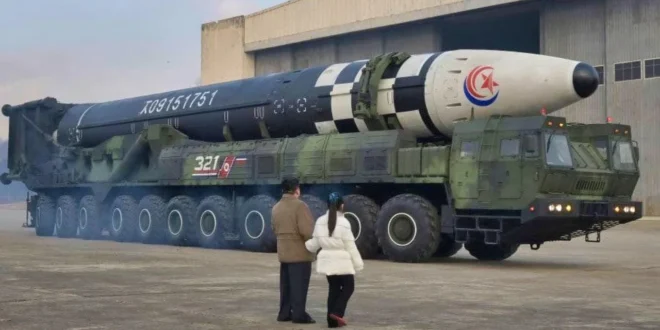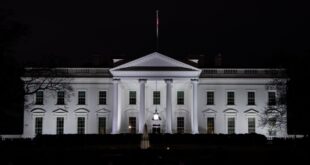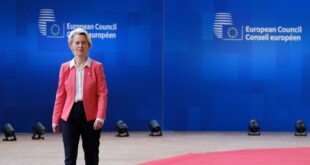While there is a degree of predictability in how Trump might handle foreign policy concerning China, Russia, and North Korea, based on his statements and actions over the past eight years, Harris remains more of an enigma.
Before addressing this specific foreign policy question, it is essential to examine Kamala Harris’ broader perspective on North Korea’s strategic position in East Asia, the Western Pacific, and beyond.
Any policy she develops toward North Korea would likely stand on its own due to the unique nature of the North Korean threat. Pyongyang’s nuclear weapons program has been one of the most critically destabilizing factors in East Asian security over the past two decades. While pursuing independent diplomacy with North Korea, Harris would need to navigate its deeply intertwined strategic interests with China and Russia.
Harris has not established herself as a distinguished strategist with a foreign policy portfolio. A recent glimpse into her foreign policy approach came during September’s presidential candidate debate hosted by ABC.
In this debate, neither Harris nor her opponent, former President Donald Trump, extensively discussed foreign policy, aside from brief comments on issues such as the Ukraine-Russia war, the containment of China, and illegal immigration from Mexico and other Latin American countries.
Harris appears unwilling to engage directly with leaders such as Kim Jong-un, Vladimir Putin, and Xi Jinping. In contrast, Trump, who has claimed that these leaders are afraid of him, would likely resume a more proactive stance, either through engagement or intimidation. During the debate, Harris said, “It is well known he [Trump] exchanged love letters with Kim Jong-un. And it is well known that these dictators and autocrats are rooting for you [Trump] to be president again because they’re so clear they can manipulate you with flattery and favors.”
Harris mocked Trump, asserting that, “world leaders are laughing at Donald Trump”; he countered by arguing that the fear that North Korea’s, China’s, and Russia’s presidents allegedly have for him contributes to maintaining global security.
Despite these seemingly trivial exchanges, it remains unclear how a President Harris would approach this authoritarian troika. Many argue that she would follow in the footsteps of her Democratic predecessors, adopting a policy of strategic patience and calibrated practical approach which implicitly suggests that little can be done to resolve the North Korean conundrum. Others hope she might pursue a dramatically different approach, either applying extreme pressure to mitigate the risk of an all-out, potentially nuclear war, or pursuing engagement aimed at peaceful coexistence with a nuclear-armed North Korea, potentially lifting sanctions and guaranteeing the survival of the Kim family regime.
However, few have delved into Harris’s understanding of North Korea from the crucial perspectives of its bilateral and trilateral relationships with China and Russia. Together and separately, these three authoritarian states present a significant challenge to the United States and its allies in the Indo-Pacific and Euro-Atlantic regions.
A key concern from such an approach is whether China, Russia, or both might weaponize North Korea as a bargaining chip to advance their national security interests, thereby enhancing North Korea’s survivability and threat capacity against American like-minded allies across the globe. How would Harris respond if faced with such a scenario? Although these three nations often mistrust each other and have disagreements, they are consistently aligned in their oppositionto liberal democracies such as the United States, the European Union, Japan, South Korea, and Ukraine.
For example, North Korea has been supplying Russia with significant quantities of ammunition and ballistic missiles for use on the front lines in Ukraine in exchange for dual-use technologies that are denied by most countries, including China. Beijing has been silent on this problematic trade, often showing its dislike but taking no action. China wants Russia to prevail in this war, as this would further erode American global hegemony while simultaneously enabling China to exploit economic opportunities with Russia. North Korea has become a strategic asset for Russia once again, and vice versa. China might be tempted to leverageNorth Korea similarly in the event of a military takeover attempt against Taiwan.
While there is a degree of predictability in how Trump might handle foreign policy concerning China, Russia, and North Korea, based on his statements and actions over the past eight years, Harris remains more of an enigma. The critical question is whether President Harris and her security team, encompassing military, economic, and technological domains, will adopt a comprehensive strategic mindset in managing the North Korean issue or not.
Will the still vague integrated deterrence strategy be innovated in this regard? How will she make the autocrats of China, Russia, and North Korea respect her presidency?
About the Author:
Wooyeal Paik is a professor at the Department of Political Science and International Studies, deputy director, at Yonsei Institute of North Korean Studies, and Director, of the Center for Security Strategy, Aerospace Strategy & Technology Institute at Yonsei University, Seoul. He is also a visiting fellow at Institut de recherche stratégique de l’École militaire (IRSEM), Paris and ad-junct professor at Vrije Universiteit Brussel, Brussels. His recent research focuses on the interactions between domestic politics and international politics from global strategic perspectives as well as the convergence of Indo-Pacific and Euro-Atlantic regions as well as key security dimensions (military, political, economic, and technological).
Image Credit: Creative Commons and/or Shutterstock.
 Geostrategic Media Political Commentary, Analysis, Security, Defense
Geostrategic Media Political Commentary, Analysis, Security, Defense





